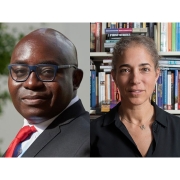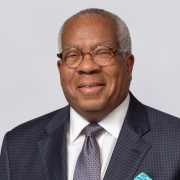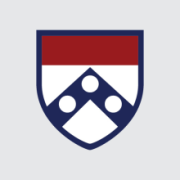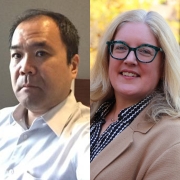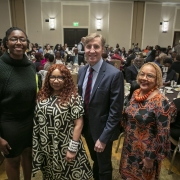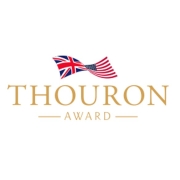Penn Arts & Sciences Magazine: Penn Linguist Knows What Not to Say and How to Say It

“We want to know what structures are possible in a human language and what are impossible,” says Julie Anne Legate, associate professor and chair of undergraduate studies in linguistics. Legate’s recent book, Voice and v: Lessons from Acehnese, takes on this problem by exploring the boundaries of passive voice sentence structure.
For her book, Legate homed in on a Malayo-Polynesian language spoken by the Acehnese of northern Indonesia. The Acehnese employ unusual syntax in the passive voice. Many languages employ this inactive communication style, but they still assure that the verb corresponds to the subject. Consider the following passive sentence: The meals are cooked by me. In Acehnese the sentence would be closer to: The meals am cooked by me. “That is not supposed to happen in any language,” says Legate.
Legate investigated other languages and found that the seemingly egregious error of human language practiced by the Acehnese actually does occur elsewhere. Celtic, Scandinavian, Slavic, and Bantu languages all have their own examples of uncommon syntax in their passive sentence structure. In a particularly interesting example, Legate observed a culture undergoing transformation. She says, “There is a change in progress in Icelandic where the younger generation of speakers has a construction that is the equivalent of this in Icelandic and the older generations don’t.”
Legate explores human languages with a scientific analysis that often surprises people. Survey the languages of the world and you might conclude they differ greatly. “But then when you start studying their properties and look beyond their differences, what you find is that they’re deeply very similar,” Legate says. All languages are hierarchical and structure-dependent. Legate maps the boundaries of language, marking well-established territories and unexplored frontiers. She analyzes how societies use language in new and different ways by breaking down a language’s syntax into fundamental parts to determine if it follows established rules.
Without realizing it, humans cut sentences up into clauses and split those clauses into different domains. We have an innate sense of where clauses belong in our language and we don’t cross the lines our language culture creates. Along with syntactic anomalies, Legate is curious about the origins of language development. How do humans acquire language? What do we come into the world knowing about the language we will speak?
As a Canadian native, French and English imbued Legate’s childhood. She is now an expert in many languages that she cannot speak. “It’s interesting—as a linguist you end up knowing a lot about a language,” Legate says. “I can’t speak Japanese at all, but I know exactly how a sentence is structured in Japanese.”
When asked what drew her to the field, Legate replies, “Linguistics is a unique combination of logic and language that I find fascinating.”
